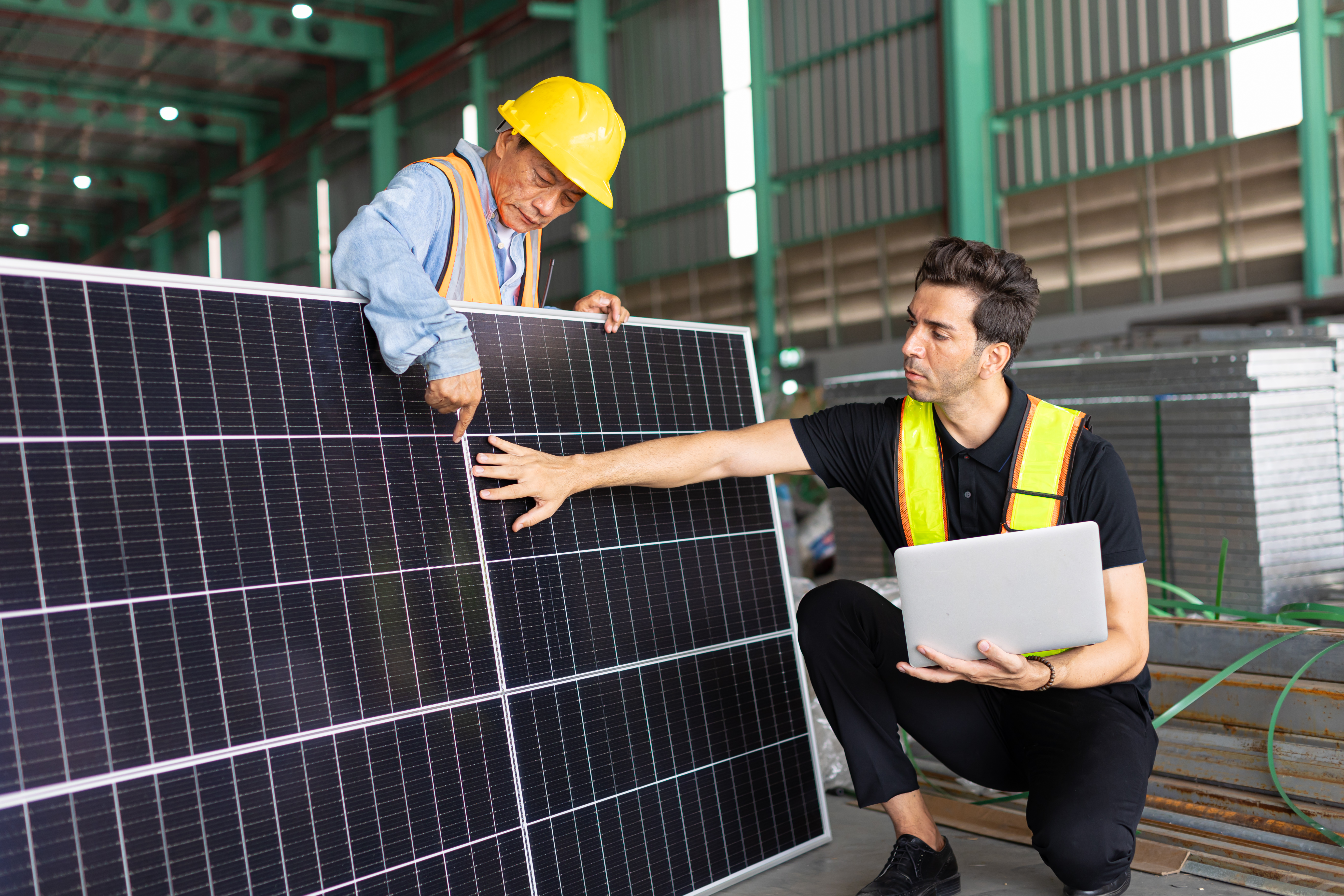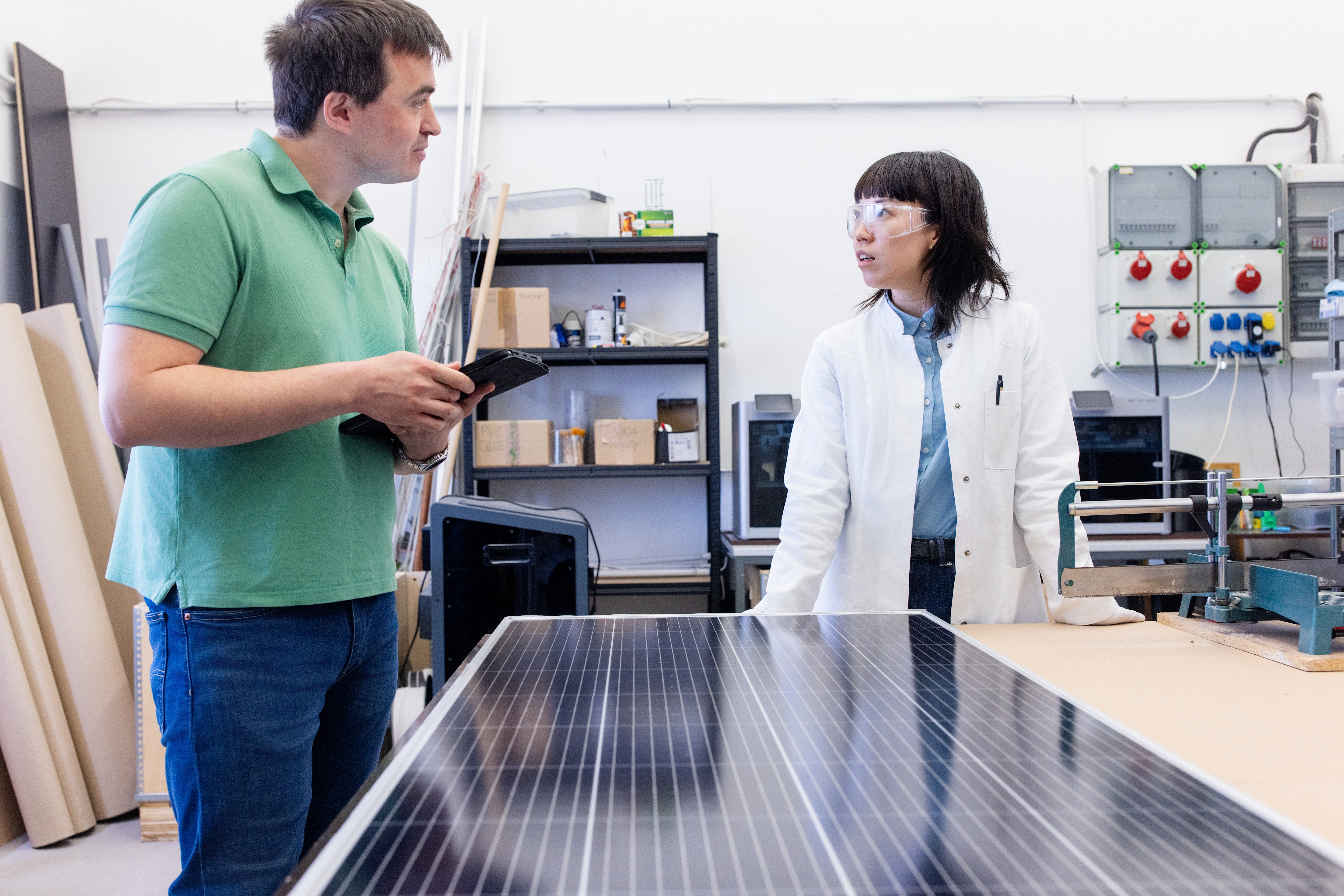Photo courtesy of iVee League Solar and Panasonic Eco Systems
As the cost of solar panels and home batteries declines, more homeowners are opting to install these technologies to lower bills, increase energy independence and improve air quality. In fact, a recent industry report found consumer interest in home battery energy storage reached a record high of 72 percent in the first half of this year.
While solar panels typically last 25 years or more and home batteries last around 10 years, eventually, these systems will reach the end of their useful life. This raises the question of how best to dispose of them cost-effectively and environmentally.
This is where recycling comes in. Rather than sending old panels and batteries to a landfill, recycling reduces waste and minimizes the environmental impact while ensuring valuable raw materials can be recovered and reused. Let's look in more detail at how these technologies are recycled and what to do when your systems reach their end.
Can solar panels be recycled?
Most home solar panels are made from crystalline silicon technology. They have an aluminum frame, a protective glass coating, copper wires, layers of polymers, and a back sheet. The silicon solar cells — which convert sunlight into electricity — are housed in a plastic junction box.
Many of these components can be recycled, offering an opportunity to recover valuable materials rather than burying them in a landfill. For instance, some 75% of the weight of a solar panel is glass, which is already widely recycled. Likewise, the aluminum frame, copper wiring and plastic junction box can also be easily recycled.
Can home batteries be recycled?
Residential battery energy storage systems largely use lithium-ion technology and contain many materials and substances, including lithium, cobalt and nickel, which are all valuable metals. Other materials commonly found in batteries include copper, which is used in electrical components, and metals like aluminum and steel, which form the battery enclosure. While many materials in a battery can be recycled, the complex structure and chemical composition inside a battery make them challenging to reclaim.
How are solar panels and batteries recycled?
Given that residential solar panels and home batteries are quite recent technologies with a long lifespan, the market for recycling these systems is still new and growing. Lots more research is required on how to do this cost-effectively, safely, and in a way that is good for the planet.
While many materials used in these systems, such as glass and metals, are easy to recycle using existing methods, extracting them from the panel or battery can be tough, given their complex construction and the potential presence of harmful substances. For example, the polymer layers in solar panels require high temperatures to loosen. And batteries contain potentially toxic chemicals that need to be recovered carefully and safely.
As installations become more widespread, innovations are emerging to improve recycling processes. These include using intelligent robotics and automation to efficiently disassemble solar panels and batteries and separate components like glass and metals, as well as new extraction and purification techniques to recover valuable metals and minerals for reuse.
Where can solar panels and batteries be recycled?
Solar panels and home battery storage systems require specialist recycling facilities, many of which don't accept items from individual homeowners. The best place to start, therefore, is by contacting your manufacturer and installer. If they don't have their own recycling programs, they'll likely have a relationship with another organization that does.
You can also research your local recycling options by exploring the websites below and contacting the relevant groups:
-
Solar Energy Industries Association: The SEIA and its members have created a recycling network for solar and storage installers and other organizations.
-
Earth911: This organization maintains an extensive recycling database you can search using your zip code.
-
Department of Energy, Solar Energy Technologies Office: Here, you can view the U.S. Solar Photovoltaic Manufacturing Map, which also includes recyclers.
What about upgrading and reusing my old panels?
Reusing or refurbishing is another way to avoid sending your old panels to a landfill. If your solar panels are approaching the end of their useful life, you can put them to use elsewhere in several innovative ways. For example, you could repurpose old panels for powering electric bikes, as vehicle charging stations or even garden lighting. You can then upgrade your rooftop solar array with newer, more efficient panels and inverters. You can also add a battery energy storage system to help your free solar power go farther and last longer.
It's so important to avoid sending old solar panels and home batteries to landfill sites. Instead, recycling these systems offers a promising way to extract valuable raw materials while protecting the planet. While lots more research is needed to understand the best recycling methods and processes for these technologies, for now you can use existing facilities through your manufacturer or installer. When you’re ready to upgrade and recycle your existing panels, reach out to a Panasonic authorized installer for help.





